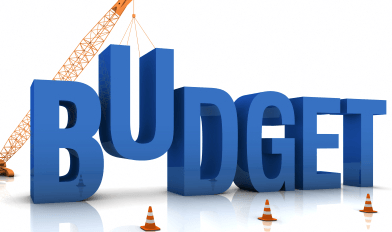Allocate 20% of national budget to education – ActionAid Ghana
 ActionAid Ghana (AAG) has launched a report on Tax, Education Privatisation and the Right to Education with a call on government to allocate sufficient resources to the education sector to improve infrastructure and facilities of public schools.
ActionAid Ghana (AAG) has launched a report on Tax, Education Privatisation and the Right to Education with a call on government to allocate sufficient resources to the education sector to improve infrastructure and facilities of public schools.
Mr Sumaila Abdul-Rahman, the country Director of ActionAid Ghana, who made the call in Accra on Wednesday at the opening of a two-day educational conference urged government to at least allocate 20 per cent of the national budget to the education to improve teaching and learning.
Addressing stakeholders in the education sector, Mr Abdul-Rahman also noted that it was imperative to strengthen the provision of public education by improving quality learning, recruiting sufficient teachers, improving the retention and learning outcomes of rural girls and other disadvantaged groups to help raise the bar of the educational ladder in the country.
He, therefore, urged government to revise tax treaties and end harmful tax incentives, strengthen tax system as well as curb corruption so as to increase domestic revenues for the country’s development, including investment of education.
Touching on the report, Madam Margret Brew Ward, the Policy and Campaign Manager of AAG, said the campaign for a comprehensive education started in 2015 by AAG under the group’s mission objective with the aim of getting better and fairer financing for free public education for all.
She said AAG undertook a field studies in three municipalities in the Greater Accra Region namely Ga East, Ga West and La Nkwantanang to ascertain extensive information on both private and public schools.
“And with this, we engaged 25 schools being basic and JHS as well as 150 households all in these municipalities for our research,” she said.
Madam Brew Ward observed that following the research, it was revealed that the increasing pace of privatisation of education in the country could be seen in the education sector statics.
She said: “Between 2001 and 2014/2015, private education in terms of number of schools as a ratio to public schools has increased by three times in 2001 to almost eight times more in 2015.
“This trend, supported by government, is also widening the inequality gap because richer children get better access and quality education based on their purchasing power … compared to the poor,” she said.
Madam Ward explained that the underlying assumption was that parents were going any length to finance the education of their children if they valued education, but for the majority of poor parents, the option was non-existent.
She therefore urged government to think over its funding for education as the total expenditure had dwindled since 2014.
In 2014, government allocated 20.5 per cent of its budget to education but it declined in 2015 to 17.8 per cent, further declining in 2016 to 13.5 per cent based on 2017 national budget expenditure outturns,” she said.
Other speakers called on the citizenry to put in the same enthusiasm around the report to stakeholders accountable in the area of education.
The two-day conference brought participants from Ghana Education Service, Ghana National Association of Teachers, National Association of Graduate Teachers, Teachers and Educational Workers Union, Tax Justice Coalition and other Civil Society organisations to form a strong coalition as well as a voice on the campaign Tax, Education Privatisation and the Right to Education in the country.
Source: GNA
